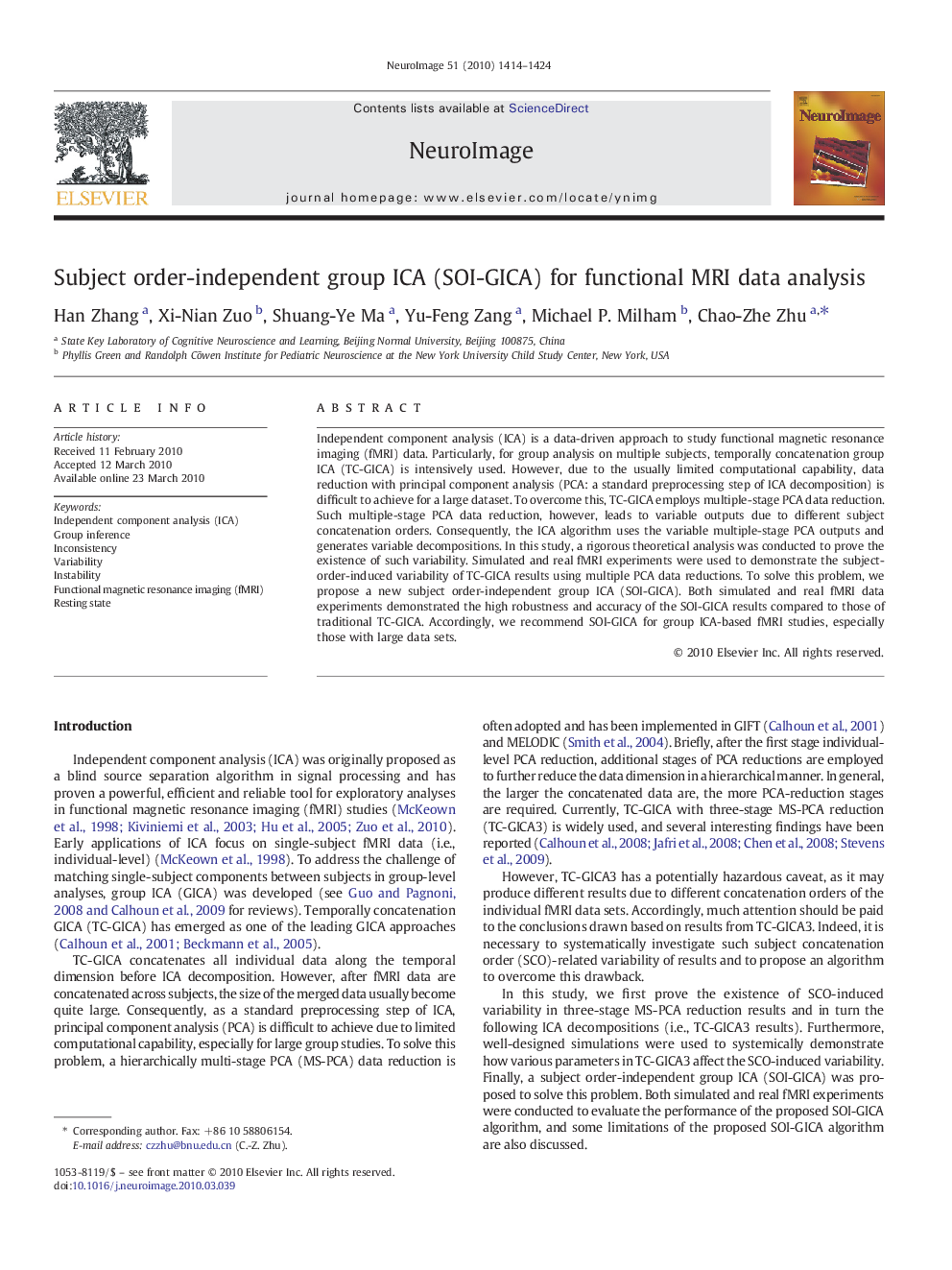| Article ID | Journal | Published Year | Pages | File Type |
|---|---|---|---|---|
| 6035822 | NeuroImage | 2010 | 11 Pages |
Abstract
Independent component analysis (ICA) is a data-driven approach to study functional magnetic resonance imaging (fMRI) data. Particularly, for group analysis on multiple subjects, temporally concatenation group ICA (TC-GICA) is intensively used. However, due to the usually limited computational capability, data reduction with principal component analysis (PCA: a standard preprocessing step of ICA decomposition) is difficult to achieve for a large dataset. To overcome this, TC-GICA employs multiple-stage PCA data reduction. Such multiple-stage PCA data reduction, however, leads to variable outputs due to different subject concatenation orders. Consequently, the ICA algorithm uses the variable multiple-stage PCA outputs and generates variable decompositions. In this study, a rigorous theoretical analysis was conducted to prove the existence of such variability. Simulated and real fMRI experiments were used to demonstrate the subject-order-induced variability of TC-GICA results using multiple PCA data reductions. To solve this problem, we propose a new subject order-independent group ICA (SOI-GICA). Both simulated and real fMRI data experiments demonstrated the high robustness and accuracy of the SOI-GICA results compared to those of traditional TC-GICA. Accordingly, we recommend SOI-GICA for group ICA-based fMRI studies, especially those with large data sets.
Keywords
Related Topics
Life Sciences
Neuroscience
Cognitive Neuroscience
Authors
Han Zhang, Xi-Nian Zuo, Shuang-Ye Ma, Yu-Feng Zang, Michael P. Milham, Chao-Zhe Zhu,
